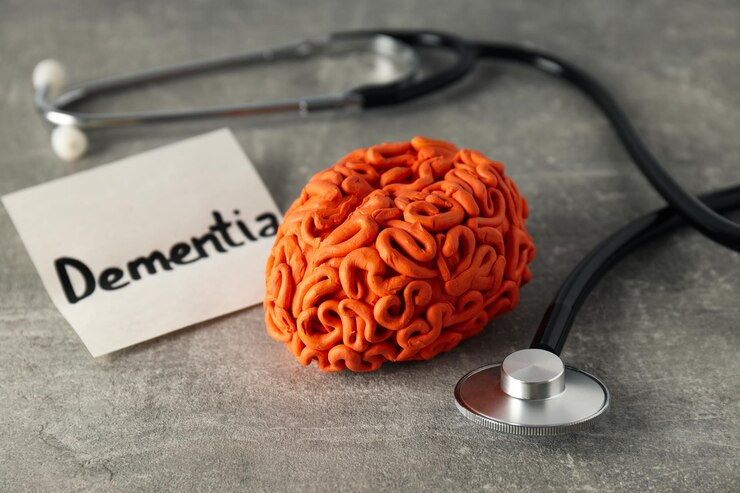Dementia is progressively becoming a more and more common condition with every 1 in 20 people over the age of 65 having some form of dementia. Over the age of 80, one in 5 people (20%) will have some form of dementia.
Dementia and becoming forgetful are sometimes incorrectly used interchangeably. As people become older some lapses in memory are expected but dementia is considered when this rate of decline is much faster and outside the usual norms.
Dementia also includes having difficultly in managing daily tasks, activities of daily living, difficulty in communication, word finding difficulty along with changes in mood and personality.
The family members are the first people to realise these difficulties and often the patient does not see them as a problem. These difficulties also increase over time. Some forms of Dementia start much earlier in life and the memory difficulties may be minimal while behaviour/ personality change may be much more prominent.
It is very important to differentiate between reversible and irreversible causes of dementia.
The reversible causes of dementia may be severe depression, endocrine irregularities like hypothyroidism, severe vitamin deficiency, severe alcohol dependence, brain tumours, etc.
The most common types of dementia and listed and described below.
Alzheimer’s Type Dementia– Usually starts in late 60’s and is due to brain damage secondary to accumulation of substances in the brain called ‘plaques’. This can also be hereditary and can also present much earlier in life. Forgetfulness is the usual first symptom, long term memory (birthdays and life events) is relatively well preserved while short term memory (last night’s dinner, location of keys, glasses) is particularly affected. Usually the personality is preserved until late but patients will develop some depressive symptoms due to frustration and can rarely develop psychotic symptoms. There is a steady decline in day to day functioning of the patient.
Vascular Type Dementia – Some of the symptoms are quite common with Alzheimer’s type Dementia but in Vascular Dementia usually the patient also has history of Diabetes Mellitus, High Blood Pressure, High Cholesterol, History of heart disease like heart attack, or brain strokes. The progress is usually sudden or step-wise, which means that level of functioning deteriorates as and when the patient has further strokes. Memory may not be affected to such an extent in Vascular Dementia initially and the patient may present with communication difficulties, poor motor functioning and personality changes.
Fronto-Temporal Dementia- This generally tends to present much earlier in life and the main symptoms usually are change in personality, paranoia and aggression. The frontal part of the brain controls are social and moral behaviours and with it affected, we see a range of behavioural difficulties.
Lewy Body Dementia- This is also secondary to accumulation of ‘Lewy Bodies’ in the brain and the patients usually present with forgetfulness and symptoms of Parkinson’s Disease (tremors, stiff muscles, frequent falls). A key feature of Lewy Body Dementia is early onset of Hallucinations (seeing and hearing things when nothing or nobody is around).
In practice, usually patients have a mixed type of dementia either Alzheimer’s plus Vascular or Vascular plus Fronto- Temporal Dementia.
You will normally need to see a Neurologist or a Psychiatrist who should undertake a detailed history and complete relevant examination. They would normally order some blood tests and brain scans to exclude reversible causes of dementia.
Some hospitals have Neuropsychologists available who may undertake memory tests to find out specific memory difficulties and guide you about how to manage them better. Other professional groups like Occupational Therapist, Speech Therapist and Physiotherapist can also provide valuable input and keep the patient functioning much longer and improve their quality of life.
This depends on the type of dementia and the associated symptoms, but nevertheless there are some practical tips that can help in all kinds of dementia.

